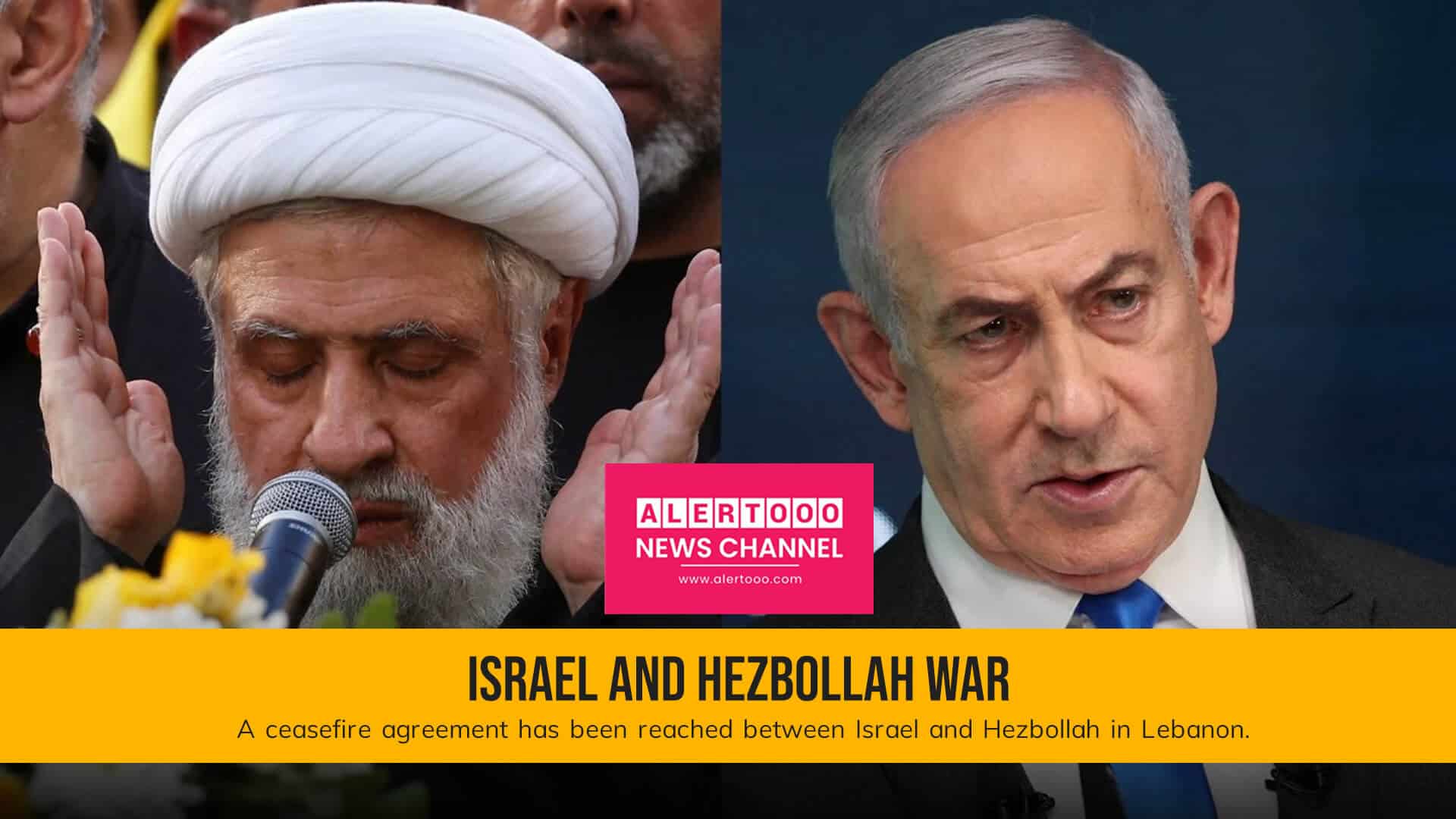Israel and Hezbollah War
Israel and Hezbollah War (27/11/2024): A ceasefire agreement has been reached between Israel and Hezbollah in Lebanon. The two-month agreement went into effect early Wednesday. This was announced by US President Joe Biden. The United States brokered the deal. Under the deal, Israeli troops will withdraw from south Lebanon and Hezbollah will withdraw from there.
Israel has said it reserves the right to defend itself if Hezbollah violates the deal. But Lebanon has refused to do so. This agreement will help reduce the tension that has been going on for the last 13 months. Tensions between Israel and Hezbollah escalated into war in September this year.

Israel and Hezbollah War agreement
Announcing the agreement at the White House, US President Joe Biden said that the agreement has been brought in as a permanent ceasefire. The United States and France issued a joint statement. It said the deal would halt the war in Lebanon and avert the threat of attacks on Israel by Hezbollah and other militant groups.
Under the terms of the ceasefire, Hezbollah will withdraw its fighters and weapons from the Blue Line within two months. With this, people of both countries will be able to return to their homes
What are the terms of this agreement?
- Hezbollah will withdraw 40 km from the Israel-Lebanon border, and Israel will evacuate all forces from Lebanon.
- Security will be managed by the Lebanese Armed Forces, with 5,000 soldiers deployed in the south.
- UN peacekeepers and an international monitoring group will oversee compliance.
- The agreement bans Hezbollah’s rearmament and reconstruction in the area.
- Concerns persist over Lebanon’s financial capacity to sustain the deal, though US and French assistance has been pledged.
- American troops won’t be stationed but will provide support as needed.
United Nations Security Council Resolution 1701
The last clash between Israel and Hezbollah was in 2006. It was abolished by United Nations Security Council Resolution 1701. This proposal is the basis of the ceasefire agreement between Israel and Hezbollah. According to Resolution 1701, there will be no weapons on the southern bank of the Litani River. The area should be free of any armed combatants. The area can only be secured by the weapons of the Lebanese army and the UN peacekeeping force.
Both Israel and Hezbollah have accused each other of violating the resolution. Israel alleges that Hezbollah was allowed to build infrastructure in the area. Lebanon accuses Israeli military aircraft of flying over its territory.
What Israel and Hezbollah have said about the ceasefire agreement
Israel’s Cabinet Committee on Security approved the US-brokered ceasefire agreement by a 10-1 majority.”Israel values the US commitment to this cycle,” Head of the State Benjamin Netanyahu’s office said in a proclamation. He retains the right of his security to act against any threat to him. However, Netanyahu insisted that Israel reserved the right to full freedom of military action in the event of a threat. “On the off chance that Hezbollah disregards the arrangement and attempts to arm itself, we will assault,” he said.”
Lebanese got back to their homes after the truce arrangement.
US President Joe Biden has endorsed Netanyahu. “Assuming Hezbollah or anybody disregards the understanding and represents a danger to Israel, they will reserve the privilege to self-preservation as per global regulation,” he said. Biden has likewise said that the understanding maintains Lebanon’s sway. Lebanon, nonetheless, has denied this.
What did Lebanon say about the agreement?
Lebanon’s acting Prime Minister Najib Mikati welcomed the ceasefire agreement. He described it as an important step towards bringing stability to the region. Hezbollah said it accepted the proposal. “We want an end to this fighting, but not at the expense of our country’s sovereignty,” Mahmoud Kamati, deputy chairman of Hezbollah’s political council, told Qatari TV channel Al Jazeera. Any break of secrecy won’t be acknowledged.”
Read More: Hezbollah fires 250 rockets into Israel after deadly Beirut strikes











